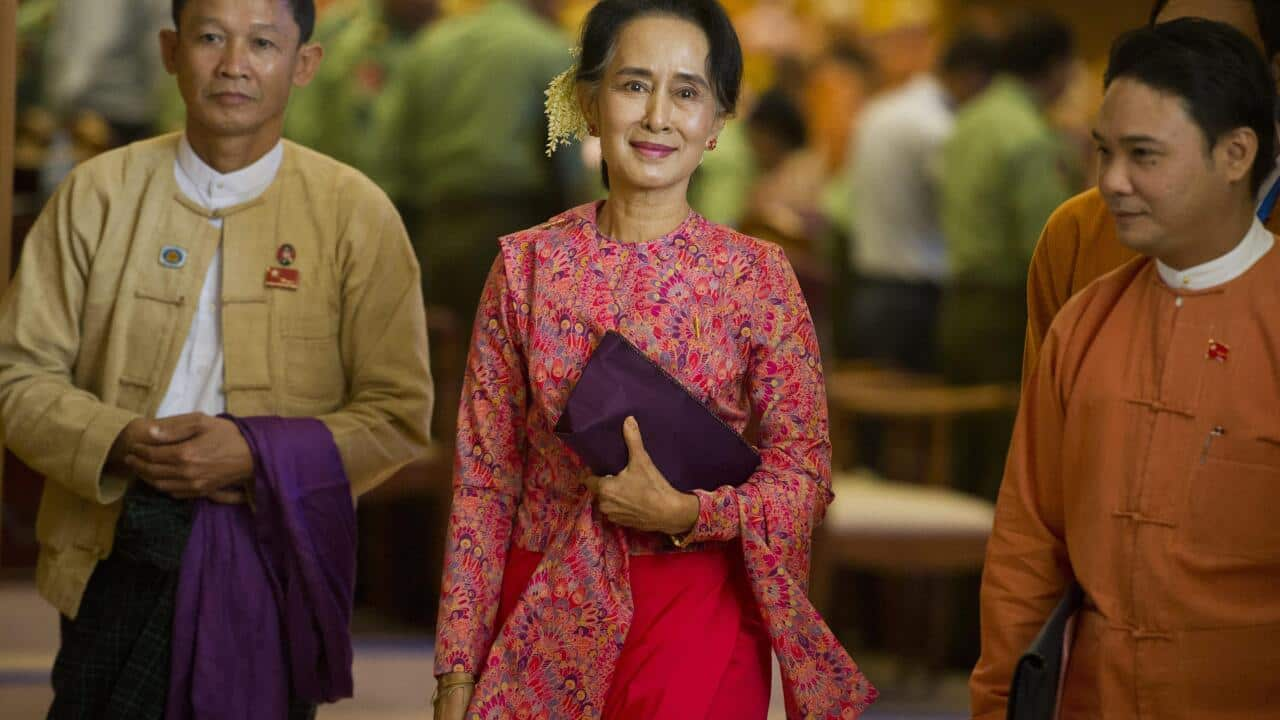Delegates in elaborate ethnic costumes mingled with military officers, mainstream majority Bamar politicians and diplomats at the start of the five-day conference.
In a welcome address in the capital Naypyitaw, Myanmar's de facto leader Aung San Suu Kyi encouraged participants to seize the opportunity before them.
"If all those who play a part ... in the peace process cultivate the wisdom to reconcile differing views for the good of the people ... we will surely be able to build the democratic federal union of our dreams," said the ex-political prisoner.
"Only if we are all united, our country will be at peace. Only if our country is at peace, will we be able to stand on equal footing with other countries in our region and across the world."
RECOMMENDED STORY

Aung San Suu Kyi arrives in China
Organisers hope to unite the people of the country, which has 20 major ethnic groups, and bring an end to decades of separatist insurgencies that have claimed thousands of lives.
Myanmar has been torn by fighting between the military, which seized power in a 1962 coup, and ethnic armed groups, hardly without a break since the end of WWII.
Representatives from 17 of the country's 20 major ethnic groups are attending, including the Karen, Kachin, Shan and Wa.
However Rohingya Muslims have been excluded.
A day before the conference started, United Nations Secretary General Ban Ki-moon called on Myanmar to improve the living conditions of the Rohingya.
Casting a shadow over the summit is a recent flare up in fighting in the country's north and ongoing clashes in the north east.
While expectations are high it is anticipated few concrete proposals will emerge from this week's summit.
Delegates are expected to meet every six months to discuss major issues, ranging from security, political representation, language and culture to control of Myanmar's rich mineral resources.
with Reuters


